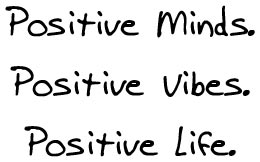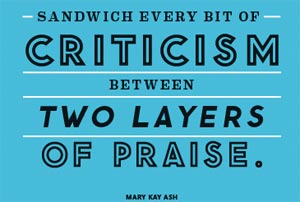People who criticize don’t realize how hurtful it is when they attack others. The one attacked usually ends up feeling like no matter what they do, nothing ever seems good enough. All the good feels over looked even when you go out of your way to try and please your partner. It makes one feel like not trying anymore. Also, the burden of feeling unappreciated and judged tends to grow heavier the longer you are together.
 As strange as it sounds, criticism has a positive purpose: it’s an attempt to evoke a change in the relationship. Complaint, comparison, and blame are ways of letting you know something needs to shift: but even though it is aimed toward a solution, criticism often becomes the problem.
As strange as it sounds, criticism has a positive purpose: it’s an attempt to evoke a change in the relationship. Complaint, comparison, and blame are ways of letting you know something needs to shift: but even though it is aimed toward a solution, criticism often becomes the problem.
Partners who criticize aren’t fully aware of the impact because, typically, they are trying to communicate a desire for change that they feel will improve the relationship. Although their intentions are positive, they don’t realize the result is negative. “You don’t listen to me,” may mean, “I want you to show interest in me by remembering our conversations because that makes me feel close to you and loved by you.” Or, “All you ever think about is sex,” may mean, “I want to have sex with you and it takes an emotional connection to ignite my desire.”
One common point of confusion regarding criticism is how men and women differ in their responses to it. Neither likes it, but if a woman complains to another woman, “The kids are driving me crazy!” most women will move in closer to comfort or console. “I am so sorry. Tell me what’s going on.” But if a woman complains to a man, “The kids are driving me crazy!” He knows sooner or later it’s going to be his fault. Most men are fixers, and so a woman’s complaint feels like his failure for not fixing the problem or preventing it from happening. Interestingly, when a man criticizes another man, it’s often in the form of banter or sparing: it even can be a way of helping him improve, for instance, “If you get a better haircut you might get a date!” These same principles work in same sex relationships also.
Behind every criticism is a desire, but when a desire in delivered and received in a negative manner, the results are personal and hurtful.
Most people defend against criticism. Some people def end by trying harder and apologizing. Others defend by withdrawing, getting angry, or loosing hope. When criticized, your psyche switches into a defensive mode, and while this protection is in place, connection with your partner is broken. With repeated criticism you’ll eventually associate your partner with pain, not pleasure, leaving you no choice but to tune out and disconnect. If and when this happens, the distance between you will widen at an alarming rate.
end by trying harder and apologizing. Others defend by withdrawing, getting angry, or loosing hope. When criticized, your psyche switches into a defensive mode, and while this protection is in place, connection with your partner is broken. With repeated criticism you’ll eventually associate your partner with pain, not pleasure, leaving you no choice but to tune out and disconnect. If and when this happens, the distance between you will widen at an alarming rate.
Relationship connection is critical to our well-being- not to mention our survival. One of our greatest human strengths is attachment. We need to be understood, cared about, and, from time-to-time, have another individual experience a state of mind similar to our own.
Criticism comes in all forms: cutting words: sounds, such as a heavy sigh: and bodily expressions like piercing eyes, wrinkled forehead, or threatening body posture.
Continual criticism ultimately can lead to contempt, the single greatest predictor of divorce and separation. Contempt means, “I’ve made my mind about you and it’s not good.” Contempt keeps you from seeing what your partner does right while only seeing what your partner does wrong.
Criticism is stressful for both partners and keeps you both on edge. As love as defenses are up, connection is down. Couples who are disconnected risk growing apart, which is the most commonly cited cause of divorce and separation.
Transforming Criticism
Behind ever blame, judgement, complaint, and criticism is a desire, so cut to the chase – go straight to our desire. Ask for what you want in an affirmative way. State your desire positively, measurably, and specifically.
“I would love for you to plan one evening a month alone for us where we have no phones or electronics for a three-hour block of time.”
 You can transform criticism by stating the underlying desire. Be clever, not critical. You can eliminate the need for criticism altogether by catching your partner in the act of doing something right – even a seemingly mundane thing – and acknowledging it.
You can transform criticism by stating the underlying desire. Be clever, not critical. You can eliminate the need for criticism altogether by catching your partner in the act of doing something right – even a seemingly mundane thing – and acknowledging it.
“It really helped when you put gas in my car for me this weekend.”
“Thank you for a wonderful evening and just staying home relaxing with me.”
“It feels so good when you smile at me and tell me you love me.”
“Thank you for remembering I had that review at work today because your note of encouragement lifted my spirits.”
Your partner is very interested in your desires but cannot hear you when they come in the form of criticism. Stay connected by sending your positive message in a positive package.
Don’t forget you can catch a mood, so try infecting your partner with positivity. The only person you can change is yourself, and you alone can promote positive change and help keep the path clear for connection by transforming criticism into desire and appreciation.
